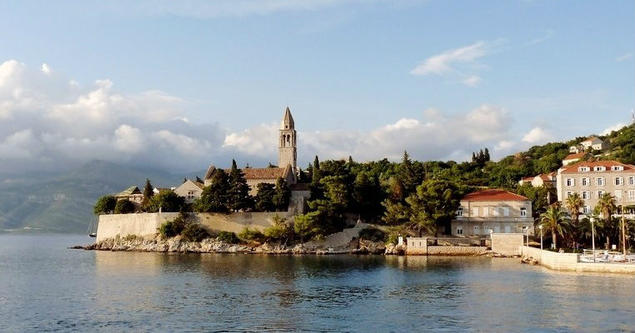Experts gather for FNI conference on climate change and sea-level rise

Human rights issues, forced migrations and questions of statehood and international law - these topics and more were top agenda when FNI in September opened an international conference on climate change and the Law of the Sea.
 The conference, a joint venture by the FNI and the TBA21 Foundation, was opened Friday morning 15 September by Research Professor Davor Vidas who chaired the conference, together with TBA21 Chairwoman, art collector and philantropist, Francesca von Habsburg.
The conference, a joint venture by the FNI and the TBA21 Foundation, was opened Friday morning 15 September by Research Professor Davor Vidas who chaired the conference, together with TBA21 Chairwoman, art collector and philantropist, Francesca von Habsburg.
Rising waters
The conference was a major event within FNI’s international research project on Climate Change and Sea Level Rise in the Anthropocene, and included a meeting of the Committee on International Law and Sea Level Rise of the International Law Association (ILA) - an international expert body tasked with systematically addressing international law issues in face of scientific predictions of sea-level rise. This committee discussed key issues of the law of the sea, human rights and forced migrations, as well as the questions of statehood and international law personality in light of substantial sea-level rise in the course of this century.
Related read: What is the anthropocene - and why is it relevant for international law?
 Fundamental questions
Fundamental questions
These questions are of increasing importance. With rising sea levels, the baselines from which the breadth of the territorial sea is measured are likely to move landward, perhaps substantially, thereby affecting the basepoints and, consequently, also the outer limits of other maritime zones. Ultimately, sea-level rise may call into question the conceptual architecture of the maritime zones under today’s law of the sea.
Related article: When the sea begins to dominate the land
The issue of sea-level rise may – in certain special situations, in particular of some low-lying Pacific and Indian Ocean States – extend far beyond the law of the sea and the determination of baselines and maritime zones of the coastal States. This gives rise to fundamental questions regarding aspects of state territory and statehood under international law. The concept of a defined territory is today seen as a constituent criterion of statehood in international law.
However, maybe the key factor should be population, rather than territory itself? Low-lying island States may become uninhabitable for other reasons long before they become physically submerged. Do people then resettle as individuals only, or as a community? And when would a State cease to exist, given the criterion of population in defining statehood?
Presents report next year
Previously, the ILA Committee have met in Washington, DC, USA (April 2014), Oslo, Norway (June 2015), and in Johannesburg, South Africa (August 2016), where the Committee presented its Interim Report. The Lopud meeting provided the basis for further work and for a report and recommendations for the 78th Biennial Conference of the International Law Association, to be held in Sydney, Australia, in August 2018.
Related publications:
- Sea Level Rise and Impacts on Maritime Zones and Limits: The Work of the ILA Committee on International Law and Sea Level Rise
- International Law and the Convergence of Two Epochs: Sea-Level Rise and the Law of the Sea for the Anthropocene
- Sea Level Rise and International Law: At the Convergence of Two Epochs
